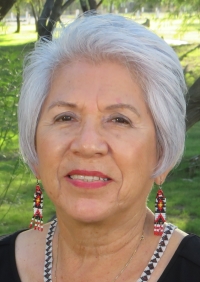CRIT Water Resiliency Act aids tribal, state needs
Guest Opinion//January 21, 2022//[read_meter]

Decreasing precipitation and increasing temperatures are changing the availability of water and increasing challenges throughout the Southwest — especially here in Arizona. The Colorado River Indian Tribes (CRIT) are uniquely situated to help.

Let me introduce the CRIT. We have the first-priority decreed water right in the Lower Colorado River and we farm approximately 80,000 acres on the Arizona side of our reservation. The river runs through our reservation dividing our lands located in California and Arizona.
Arizona Senators Mark Kelly and Kyrsten Sinema recently introduced S. 3308, the CRIT Water Resiliency Act. This legislation will permit us to lease, exchange and store some of our Colorado River water for use off the reservation.
We are one of the few entities with the water resources that can provide a drought supply while the state explores bigger projects such as desalination, water reuse and imported water. But we cannot make our water available off the reservation unless Congress authorizes it.
The restrictions on tribes leasing water resources pursuant to the Indian Non-Intercourse Act were enacted more than 200 years ago. The world is different today. Many tribes, including some in Arizona, have secured water leasing authority through water settlements. S. 3308 will provide water leasing authority to CRIT using the same authorization language.
This legislation restores the tribe’s sovereign control over its water rights.
As chairwoman of the Colorado River Indian Tribes, my duties include protecting and supporting the people of CRIT. We rely on the river, so it is also my solemn duty to protect its health.
We started leaving water in Lake Mead in 2016 to help avoid shortages. CRIT left 55,000 acre-feet of water in Lake Mead in 2020 and 2021, and we will again in 2022. This has elevated the lake by more than three feet. We did this by fallowing nearly 11,000 acres of productive on-reservation farmland.
S. 3308 will permit us to make water available for urgent on-river environmental needs while still helping our neighboring river communities and providing a drought supply for other Arizona water users. Like other tribes, CRIT should be able to both lease water and leave water in Lake Mead.
This legislation and its implementing agreements were developed cooperatively with the state of Arizona and the Bureau of Reclamation. This has been an open and transparent process, including public meetings hosted by the Arizona Department of Water Resources with opportunities for public input. Through that public process, water users in Arizona and our tribal members expressed support for this legislation, and I call on Congress to quickly enact it.
Unfortunately, for all of us in the Colorado River basin there are few immediate and realistic solutions to the current drought crisis. But this legislation offers an option that will benefit all of us.
The Colorado River Indian Tribes have been the stewards of the river since long before the dams were built, and the settlers entered the basin. The Colorado River has sustained us. Now we offer a plan to help save the river and provide drought relief that Arizona needs.
Amelia Flores was elected chairwoman of the Colorado River Indian Tribes in December 2020. She is the first woman to hold that office.

















